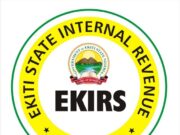Leading carrier, MTN Nigeria said it has invested ₦202.4 billion, a 159per cent increase year-on-year, to upgrade and expand network infrastructure, enhancing service quality and capacity.
According to its unaudited results for first quarter (Q1) ended 31 March 2025 released yesterday, the telco also said its total subscribers increased by 8.2per cent to 84.1 million, adding 3.2 million subscribers during the period under review.
The telco said active data users rose by 13.0per cent to 50.3 million, adding 2.6 million active users during the period under review.
Its CEO, Karl Toriola, said the telco received regulatory approval for price adjustments, a critical enabler to sustain ongoing investment in the industry and maintain the quality of service for customers. He said this has empowered us to accelerate network investments with ₦202.4 billion in capex (up 159per cent), focused on boosting capacity and improving user experience. He said: “We are pleased with our performance in the first quarter of 2025, which reflects the continued execution of our strategic priorities and the resilience of demand for our services. Building on the momentum from Q4 2024, our Q1 results place us firmly on the path to restoring profitability and achieving a positive net asset position within the current financial year, while increasing our investments to improve network and service quality.”
According to Toriola, although macroeconomic uncertainties persist, the telco is encouraged by the relative stability of the naira during the period and the moderation in inflation following the rebasing of the Consumer Price Index (CPI) in January 2025. The exchange rate remained relatively stable at N1,537/US$ at the end of March 2025, while reported inflation was 24.2%.
“We also continued to explore efficiency-enhancing opportunities through infrastructure-sharing partnerships. A key milestone was the agreement between MTN Group and Airtel Africa to collaborate on passive infrastructure in Nigeria, enabling accelerated coverage and driving network cost efficiencies.
“Our commercial performance remained strong, supported by sustained investment in network capacity, solid demand, and proactive customer value management (CVM) initiatives. In Q1, we added 3.2 million new subscribers, bringing our total base to 84.1 million. During the same period, active data users rose by 2.6 million, increasing the base to 50.3 million and contributing to a 46.4per cent YoY growth in data traffic. This growth was supported by our disciplined approach to gross connections and churn management, as well as continuous innovation in customer value propositions.
“We commenced phased implementation of the new tariff structure in mid-February 2025 across our data and voice bundles, with the majority of adjustments taking effect in March. “While the full impact on usage and revenue is expected from Q2, early indicators suggest continued resilience in customer demand, aided by our targeted CVM initiatives,” he said.
He said the telco’s fintech strategy recalibration was well-advanced during the quarter, with a deliberate focus on enhancing the quality of the ecosystem. Although this led to a 25.7per cent decline in our active wallet base to 2.1 million compared to December 2024, it enabled us to onboard more high-value customers and improve float levels, thereby enhancing the overall health and sustainability of the ecosystem.
“As part of our long-term ambition to drive financial inclusion, we are launching a rural penetration strategy aimed at expanding access to financial services for underserved and financially excluded communities. We remain committed to improving the quality and engagement of our wallet base, while accelerating the development of advanced fintech services; these efforts are aligned with our strategic objective to build a more robust, inclusive, and scalable digital financial ecosystem,” he explained.
He said the telco’s strong commercial momentum drove broad-based revenue growth across core segments, including data, voice, digital services and fintech. Service revenue grew by 40.5per cent, supported by the late-quarter tariff adjustments.
Cost pressures were mitigated by the revised IHS tower lease agreement, which reduced foreign exchange (forex) exposure and capped price increases, as well as improved underlying expense efficiency initiatives.
“As a result, EBITDA increased by 65.9per cent, and the EBITDA margin expanded by 7.2pp to 46.6per cent, which aligns with our guidance. Notably, the stability in the exchange rate in Q1 versus December 2024 helped reduce forex losses.
“Overall, we reported a significant turnaround in our bottom line, with a profit after tax of N133.7 billion versus a loss of N392.7 billion in the prior year. This performance reflects the successful delivery of the five strategic priorities we committed to at the Extraordinary General Meeting (EGM) held on 30 April 2024. As a result, our retained earnings improved to negative N474.1 billion (December 2024: negative N607.5 billion) and shareholders’ equity to negative N324.6 billion (December 2024: negative N458.0 billion). We also delivered a positive free cash flow of N209.9 billion, representing a decrease of 54.8per cent, mainly due to the accelerated capex in Q1 and the elevated prior-year FCF base, due to larger naira depreciation and accrual build-up in that period. We expect a progressive recovery in FCF as the full impact of the tariff increase is realised.
“We remain focused on executing our Ambition 2025 strategy, accelerating network investment, deepening digital and financial inclusion, and restoring shareholder value in a challenging but improving macro environment. We will continue to execute with
Reviewing the telco’s performance the CEO said service revenue grew by 40.5per cent, reflecting the continued resilience in ‘demand for our services and disciplined commercial execution. We are pleased with this strong performance, which has yet to reflect the full effects of price adjustments implemented toward the end of the quarter.
“Data revenue rose by 51.5per cent, driven by active user base growth and higher data consumption. This benefited from some further support from the price adjustments and our ongoing network investments to enhance service quality. Data traffic increased by 46.4per cent, while average usage per subscriber grew by 29.5per cent to 12.8GB.
“We added approximately 4.0 million smartphones onto the network during the quarter, bringing smartphone penetration to 60.7per cent, underscoring rising demand for high-speed data services. Our 4G network coverage expanded to 82.7per cent of the population (up 0.2pp), while 5G coverage remained stable at 12.7per cent, as we prioritised enhancing capacity over broadening coverage during the period.
“We maintained market leadership in the home broadband segment, adding approximately 233k new subscribers in Q1 and bringing our total broadband subscriber base to 3.5 million. We leveraged our 5G fixed wireless access and fibre-to-the-home offerings, which enable reliable connectivity to meet the evolving digital needs of households and businesses. These efforts align with our commitment to expanding broadband access and accelerating digital inclusion across Nigeria.
“Our focused strategy on subscriber acquisition, retention, and usage continued to support top-line growth in voice, in terms of which revenue increased by 27.7per cent, bolstered by price adjustments and sustained usage trends.
“The enterprise business recorded a 55.2per cent increase in revenue, supported by growth in fixed connectivity, data services, and converged solutions. We continued to benefit from new customer acquisitions and strategic partnerships that enhanced our enterprise value proposition and scale.
“Our digital services business delivered robust growth of 92.1per cent, underpinned by increased demand for rich media content and enhancements to the user journey. While monthly active users of rich media services (excluding ayoba) declined by 19.4per cent to 7.9 million compared to December 2024, due to platform optimisation initiatives, overall engagement levels improved. This led to strong revenue growth across both rich media and value-added services (VAS),” Toriola said.
He said fintech revenue increased by 57.9per cent, primarily driven by the strong performance of our airtime lending product (Xtratime) and higher float income, supported by the onboarding of high-value customers. The revamp of our customer acquisition strategy, which commenced in Q3 2024, allowed the company to further optimise its incentives and customer engagement framework to strengthen qualitative performance, deepen service penetration, and enhance performance monitoring across the sales and distribution channels.
“Consequently, we observed a decrease in active wallets (down 25.7per cent), while agents and merchants increased by 47.7per cent and 23.6per cent, respectively, compared to December 2024. Float holding grew by 60.3per cent compared to December 2024, indicating improved quality of our wallet base and sustained underlying demand in the ecosystem. We are now prepared to invest and intensify qualitative field acquisition efforts, particularly in rural and underserved areas, in line with our financial inclusion objectives.
“Operating expenses (opex) increased by 25.0per cent, primarily driven by the impact of naira depreciation on our lease-related costs, which account for 60–65per cent of total opex. The US-dollar component of our tower lease costs is referenced to the exchange rate on the first day of each quarter, which rose by 72.2per cent YoY, from N897.8/US$ at the beginning of Q1 2024 to N1,546.1/US$ on the first day of Q1 2025.
“This impact was partly mitigated by the renegotiated terms of tower lease contracts, which helped reduce foreign exchange exposure and capped CPI-linked escalations, as well as by the VAT exemption on the energy component of the leases in line with the new Finance Act. Additionally, ongoing cost-efficiency initiatives supported the containment of overall operating cost growth.
“As a result, EBITDA grew by 65.9per cent, and the EBITDA margin expanded by 7.2pp to 46.6per cent. Adjusting for the adverse effects of naira depreciation (estimated at 8.8pp), the underlying EBITDA margin would have been 55.4per cent, underscoring the strength of our operational fundamentals.
“Depreciation and amortisation rose by 22.1per cent, mainly due to the increased right-of-use assets stemming from the revised tower lease agreements. Net finance costs increased by 44.0%, driven by higher interest rates on borrowings, larger lease liabilities following naira depreciation, and new lease additions related to the extension and renewal of tower lease contracts.
“Encouragingly, net foreign exchange losses declined by 99.2per cent to N5.5 billion, reflecting the relative stability of the naira during the quarter—from N1,535/US$ at year-end 2024 to N1,537/US$ at the end of March 2025.
“Overall, we recorded a strong recovery in our bottom line supported by the substantial reduction in forex losses, resulting in a profit after tax of N133.7 billion compared to a loss of N392.7 billion in the prior year,” Toriola concluded.
Credit: thenationonlineng.net











































































